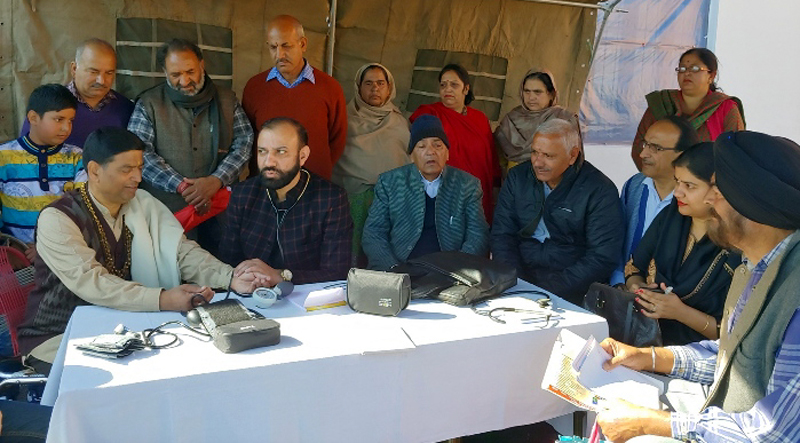Excelsior Correspondent
POONCH, Nov 10: In order to effectively reach target populations, public health promotion efforts have significantly put the role of religious leaders and advocacy at the backburner. However, various qualitative and quantitative studies over the past few years have gone to suggest that the involvement of religious leader in health-related interventions has generally been found to improve the participation of their congregations in these interventions and thus promote positive health outcomes. Religious leaders are highly esteemed, and their authority can convince members of their congregations to accept or reject various health interventions. Consequently, religious leaders are the major partner in such interventions albeit they are seldom consulted about community health priorities and health promotion preferences. These insights are critical to ensure productive partnerships, effective health management and sustainable health policies across the nation.
This was stated by Dr. Sushil Sharma, HOD Cardiology on the sidelines of a health check up cum awareness camp in the precincts of newly constructed Navgreh Temple situated near LoC at village Ajote in district Poonch. More than 500 people were screened, evaluated and diagnosed for various health ailments. Free medicines were also distributed as per the requirements.
“Addressing health inequities requires focusing on multiple levels of determinants, including the appropriate provision of medical care, policies that influence access to such care, and public health initiatives that target community health concerns. Although upstream population health interventions, including health equity transformation in policy, systems, and structures, offer wide-reaching potential for improving the health of the most underserved populations, community-based interventions also have the potential to decrease inequities in health care. Among these community-based intervention opportunities, religious and faith based institutions are important partners ensuring success for efforts in health promotion. Religious leaders can serve as key partners in the development, implementation, and analysis of health-promotion programming. They bring key strengths to a research partnership: faith-based institutions have close social relationships, have an existing infrastructure, and play pivotal roles in the community,” Dr Sharma added.
Others, who were part of this health advocacy cum check up programme included Dr. Pallavi Sharma, Dr Sarfaraz, Dr Sahil Sharma and Dr Udesh Pal. Paramedics and volunteers who were part of the team included Vikas Kumar, Akshay Kumar, Jarnail Singh, Abhijeet Sharma, Deepak, Kuljeet Singh, Raghav Rajput, Anmol Singh, Paramjeet Singh, Kranesh Kumar, and Raj Kumar.


